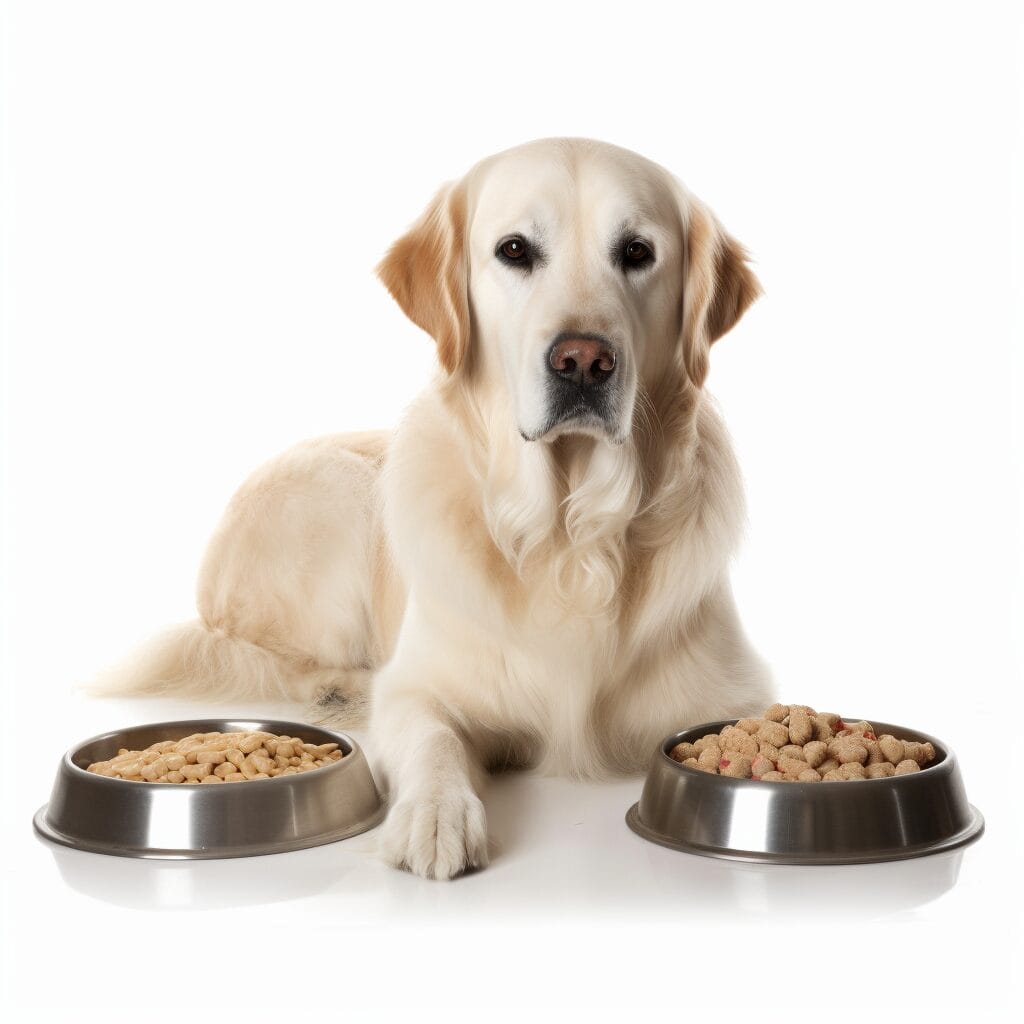Wondering if your beloved Yorkshire Terrier is getting the right nutrition? yorkie feeding, dog food A well-planned feeding chart, dog food, kibble, wet food is crucial for your Yorkie’s health and happiness. In this comprehensive guide, we’ll dive into the specifics of a balanced diet tailored to meet your tiny companion’s needs.
From portion sizes to meal frequency, we’ve got you covered with all the essential details. Whether you’re a new pet parent or seeking to optimize your current feeding routine, this article will provide valuable insights to ensure that your Yorkie thrives on a wholesome diet with kibble, foods, and vet.
Yorkie Feeding Chart
Understanding Yorkie Nutritional Needs
High-Protein Diet
Yorkies, dogs, have a high metabolism and an active lifestyle, so they require a high-protein diet, kibble, to support their energy needs. Protein is essential for muscle development and repair, which are crucial for these small, energetic dogs. Without adequate protein intake, Yorkies may experience stunted growth and reduced muscle mass.
A balanced diet with the right proportion of protein ensures that dogs can maintain their playful nature while staying healthy. For example, lean meats like chicken or turkey provide the necessary protein without excessive fat content that could lead to weight issues in these petite dogs.
Essential Nutrients
In addition to protein, Yorkies need a variety of essential nutrients such as vitamins and minerals to support their overall health. These nutrients play vital roles in maintaining strong bones, healthy skin and coat, proper immune function, and more. For instance, vitamin A promotes good vision while calcium supports bone strength.
By providing a well-rounded diet rich in essential nutrients, owners can help ensure that their Yorkies thrive both physically and mentally by giving them the right food. This might include incorporating vegetables like carrots or green beans into their dogs’ food to supply important vitamins like A and K along with fiber for digestive health.
Specific Dietary Needs
Understanding the specific dietary needs of Yorkies is crucial for ensuring they receive optimal food tailored to their unique requirements. Factors such as age, activity level, and any existing health conditions should be taken into account when determining the ideal feeding plan for these small but lively dogs.
For example:
- Puppies may require more frequent meals than adult dogs due to their higher energy expenditure during growth.
- Senior Yorkies might benefit from diets designed to support joint health or manage potential age-related issues.
- Active individuals may need increased food portions compared to less active ones to fuel their daily activities without becoming undernourished.
Feeding Guidelines for Yorkie Puppies and Adults
Puppy Feeding
Their small size and high energy levels require a specific feeding approach. (food) It’s crucial to provide them with small, frequent food throughout the day to support their growth and development. This helps maintain stable blood sugar levels and prevents hypoglycemia, a common issue in small breeds like Yorkies. High-quality puppy food that is rich in essential nutrients such as protein, fat, vitamins, and minerals should be chosen for optimal health. As they grow older, the frequency of meals can gradually decrease while adjusting portion sizes accordingly.
Puppy Feeding:
- Small, frequent meals
- High-quality puppy food rich in essential nutrients
- Gradually decreasing meal frequency as they grow older
Yorkie puppies have unique nutritional needs due to their small size and high energy levels. Providing them with small, frequent meals of high-quality puppy food ensures proper growth and development.
Adult Feeding
For adult Yorkies, a diet tailored to their size and energy levels, including food, is essential for maintaining overall health. They thrive on a balanced diet consisting of protein sources like chicken or turkey, healthy fats from sources like fish oil or flaxseed oil, complex carbohydrates from vegetables or whole grains, as well as essential vitamins and minerals. Portion control is vital to prevent obesity since Yorkies are prone to weight gain if overfed. Additionally, feeding guidelines recommend dividing daily portions into two or three meals spread throughout the day rather than free-feeding.
Adult Feeding:
- Balanced diet tailored to size and energy levels
- Protein sources (chicken/turkey), healthy fats (fish/flaxseed oil), complex carbs (vegetables/whole grains)
- Portion control & divided daily portions into 2–3 meals
Tailoring an adult Yorkie’s diet according to its size and energy requirements by providing the necessary nutrients without overfeeding helps maintain overall health.
Proper Feeding Frequency for Yorkie Puppies
Benefits of Frequent Feeding
Yorkie feeding is crucial, especially for puppies. They benefit from 3 to 4 small meals daily, ensuring sustained energy levels and supporting healthy development. A consistent feeding frequency of food plays a vital role in the overall well-being of young Yorkies.
Consistent and frequent feeding of food helps maintain their energy levels throughout the day, which is essential for their playful nature and active lifestyle. By providing them with multiple small meals, you are ensuring that they receive a steady flow of food to support their growth and development. This approach also prevents dips in blood sugar levels by regulating food intake, reducing the risk of hypoglycemia common in toy breeds like Yorkies.
Frequent feedings can prevent overeating as well since smaller portions decrease the likelihood of excessive hunger leading to voracious eating habits. It aids digestion by allowing food to be broken down more efficiently due to reduced portion sizes.
Establishing a Consistent Feeding Schedule
Creating a consistent yorkie feeding schedule with the right food is crucial for maintaining their health and preventing potential issues such as hypoglycemia or digestive problems. By adhering to set meal times each day, you’re helping your puppy develop healthy eating habits while also regulating their metabolism and food.
When establishing a feeding routine for your Yorkie puppy, consider incorporating meal times and food into your own daily schedule. For example:
- Morning: Breakfast shortly after waking up
- Mid-morning: Small snack or meal
- Afternoon: Another small meal or snack
- Evening: Dinner before bedtime
By following this pattern consistently every day, you’re not only meeting your puppy’s nutritional needs but also creating predictability that can reduce anxiety related to mealtimes.
Another important aspect when setting up a consistent feeding schedule is monitoring portion sizes of food at each mealtime. Providing just enough food ensures that your puppy receives adequate nutrition without overeating or feeling hungry between meals.
Transitioning Yorkies from Puppy to Adult Food
Gradual Transition
Transitioning Yorkies from puppy to adult food is crucial for preventing digestive upset. Abruptly changing their diet can lead to stomach issues and discomfort. It’s essential to gradually introduce the new food while reducing the old one over a period of 7-10 days.
Switching too quickly can cause diarrhea, vomiting, or refusal to eat in Yorkie puppies. This gradual transition allows their sensitive digestive system to adapt without causing stress or health problems.
Monitoring Changes
During the transition process, it’s important for pet owners to monitor any changes in behavior or appetite. Keep an eye out for signs of distress such as lethargy, excessive gas, or unusual stool consistency.
If you notice any adverse reactions during the switch, it may be necessary to slow down the transition process by maintaining a higher ratio of puppy formula mixed with adult food until your dog fully adjusts.
Managing Portion Sizes for Adult Yorkies
Importance of Portion Control
Portion control plays a crucial role in maintaining the health and well-being of adult Yorkies. Small breeds like Yorkies are prone to overfeeding, which can lead to obesity and related health issues. By carefully managing portion sizes, owners can ensure that their furry friends receive the right amount of food without overeating.
It’s essential to adjust portion sizes based on the individual dog’s activity level. Active adult Yorkies may require slightly larger portions to fuel their energy needs, while less active ones should be fed smaller amounts to prevent unnecessary weight gain. Monitoring portion sizes is key in preventing under or overfeeding and helps maintain an ideal body weight for adult Yorkies.
Ensuring Adequate Nutrition
By monitoring portion sizes, owners can ensure that their adult Yorkies receive adequate nutrition without consuming excess calories. This is particularly important. Adjusting portion sizes according to the specific nutritional needs of adult small dogs ensures they get the right balance of nutrients without consuming too much food.
Owners should also refrain from giving excessive treats or table scraps as these additional snacks can significantly contribute to a dog’s daily caloric intake. Instead, incorporating healthy options like sweet potatoes into an adult Yorkie’s diet can help provide essential vitamins and fiber without adding unnecessary fat or calories.
Foods to Avoid for Yorkie Health
Harmful Foods
Chocolate, grapes, and onions are toxic to Yorkies and should be avoided at all costs. These foods can cause severe health issues, including kidney failure, anemia, and even death in extreme cases. It’s crucial for Yorkie owners to keep these items out of their pet’s reach.
High-fat and salty foods should also be kept away from Yorkies. Consuming such foods can lead to obesity, pancreatitis, and heart problems in these small dogs. It’s important to understand that their little bodies cannot handle the same types of food that humans consume.
Protecting Well-being
Understanding which foods are harmful is essential for safeguarding the well-being of Yorkies. By being mindful of what they eat, owners can prevent unnecessary health complications and ensure a longer, healthier life for their beloved pets.
Being aware of these harmful foods empowers owners to make informed decisions about what goes into their furry friend’s bowl. For example:
- Opting for lean meat like chicken or turkey instead of high-fat options.
- Choosing healthy snacks like carrots or apple slices over potentially dangerous treats.
- Reading labels on dog food products carefully to avoid those with excessive fats or preservatives.
Addressing Dietary Concerns in Yorkies
Common Dietary Concerns
Yorkie owners should understand common dietary concerns such as allergies or sensitivities to manage their pet’s diet effectively. These small dogs can be prone to various health issues related to food, including upset stomach, diarrhea, and allergic reactions. Identifying these concerns is crucial for maintaining the well-being of your Yorkie.
Consulting with a veterinarian is essential for gaining insight into specific dietary concerns for individual Yorkies. A vet can help pinpoint any potential allergies, sensitivities, or other health conditions that may affect your dog’s diet. By doing so, you can tailor the feeding plan according to your Yorkie’s unique needs.
Prompt Addressing of Concerns
Addressing dietary concerns promptly contributes significantly to the overall health and happiness of Yorkies. Delayed action on identified problems could lead to more serious health issues down the line. For example, if a Yorkie has an allergy or sensitivity to certain ingredients like corn or chemical preservatives commonly found in commercial dog treats, it could cause ongoing discomfort and potentially worsen existing health conditions.
Ensuring that your Yorkie’s diet aligns with its specific requirements will not only prevent potential digestive issues but also contribute positively towards joint health and overall well-being. By being mindful of what goes into their meals and treats, you are actively promoting their long-term health benefits while minimizing drawbacks associated with inappropriate feeding.
Printable Yorkie Puppy Feeding Schedule
Importance of a Feeding Schedule
A feeding schedule is crucial for managing a Yorkie puppy’s meals. It provides structure and consistency, essential for their care. With a structured feeding schedule, you can ensure your puppy receives the right amount of nutrition at the right times each day.
Consistency in meal times helps regulate your puppy’s eating habits and supports their overall well-being. By following a printable feeding schedule, you can easily monitor when and what your puppy eats, aiding in maintaining their health.
Having set mealtimes also assists in potty training as it establishes regular bathroom breaks after meals. This routine enables you to anticipate when your Yorkie will need to relieve themselves, making it easier to manage house training.
Creating an Effective Printable Feeding Schedule
When creating or using a printable feeding chart for your Yorkie puppy, consider factors such as age, weight, and activity level. These elements play vital roles in determining the appropriate portion sizes and frequency of meals for your pet.
An effective feeding schedule should include specific meal times throughout the day along with recommended portion sizes based on age and weight. For instance:
- 8:00 AM – Breakfast: 1/4 cup of high-quality dry kibble.
- 12:00 PM – Lunch: A small serving of lean protein (chicken or turkey) with vegetables.
- 5:00 PM – Dinner: Another portion of high-quality dry kibble or wet food specifically formulated for puppies.
It’s important to note that these are general guidelines; individual needs may vary based on each dog’s unique requirements.
Final Remarks
You’ve now gained a comprehensive understanding of the nutritional needs of Yorkies and the essential feeding guidelines for both puppies and adult dogs. It’s crucial to remember that proper nutrition plays a significant role in your Yorkie’s overall health and well-being. By adhering to the recommended feeding frequency, portion sizes, and transition strategies, you can ensure that your furry companion receives the best care possible.
As you embark on this journey of nurturing your Yorkie, remember that their dietary requirements may evolve over time. Stay attuned to any changes in their behavior or physical condition, and don’t hesitate to consult with a veterinarian for tailored advice. Your dedication to providing optimal nutrition will contribute to a long and joyful companionship with your beloved Yorkie.
Frequently Asked Questions
What are the nutritional needs of Yorkies?
Yorkies require a balanced diet with high-quality protein, healthy fats, and essential nutrients. Their small size means they need dense, nutrient-rich food to support their energy levels and overall health.
How often should I feed my Yorkie puppy?
Yorkie puppies typically need to be fed 3-4 times a day to support their fast metabolism and growth. Splitting their meals into smaller portions helps prevent hypoglycemia and provides them with a steady source of energy.
When should I transition my Yorkie from puppy to adult food?
You can start transitioning your Yorkie from puppy to adult food around 9-12 months of age. Gradually mix in increasing amounts of adult food with the puppy food over the course of about a week to make the switch easier on their digestion.
What foods should I avoid feeding my Yorkie for its health?
Avoid feeding your Yorkie chocolate, grapes, raisins, onions, garlic, and anything containing xylitol as these can be toxic for them. Steer clear of fatty or overly processed foods that could lead to digestive issues or weight gain.
How do I address dietary concerns in my Yorkie?
If you have specific dietary concerns for your Yorkie such as allergies or sensitivities, consult with a veterinarian who can provide tailored advice based on your dog’s individual needs.








